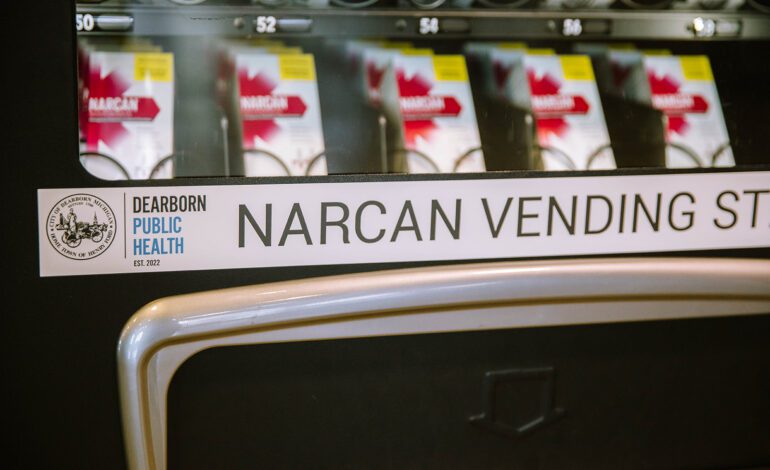Last week , the city of Dearborn announced a significant decline in drug overdose cases and related deaths during the year 2024.
According to new data, overdose incidents dropped by 34 percent—from 93 cases in 2023 to 61 cases in 2024 — while overdose-related deaths fell by 43 percent, from 14 to just 8 fatalities in the same period.
These new figures represent a notable milestone in Dearborn’s ongoing efforts to combat the opioid crisis. Addressing this epidemic has been a top priority for the city’s Public Health Division since its establishment in April 2022.
The data shows the first sustained decrease in both overdose incidents and drug-related deaths in Dearborn since the opioid crisis was declared a national public health emergency in 2017.
“This is what it looks like when local government takes public health seriously,” Mayor Abdullah Hammoud said. “We’ve approached the opioid crisis not as a source of shame, but with action, compassion and data-driven solutions.”
He emphasized that his administration is proud of this progress, which he described as “only the beginning.”
Among the first actions taken by Hammoud’s administration to address the opioid crisis was the citywide installation of free Narcan (naloxone) vending machines — an opioid overdose reversal drug. These machines were made possible through state grants and Dearborn was one of the first municipalities to utilize them. To date, the city has distributed more than 10,000 units of Narcan.
“We built this division with a clear mission: to improve the conditions of people closest to suffering,” Chief Public Health Officer Ali Abazeed said.
He credited the drop in opioid-related deaths to the administration’s commitment and determination to address the crisis with dignity and care for “the people we know, love and live with.”
In addition to distributing free Narcan, the city launched a counseling program for individuals struggling with addiction in partnership with ACCESS (Arab Community Center for Economic and Social Services). A licensed substance use counselor responds to individuals experiencing addiction-related or mental health emergencies in coordination with the Dearborn Police Department.
“As in communities across the country, the opioid epidemic has caused unimaginable suffering for many Dearborn families,” Police Chief Issa Shahin said.
He added that the city has tackled the issue with a multi-faceted approach, from life-saving interventions during emergency calls to a coordinated co-response program. He confirmed that the Police Department will continue working closely with the Public Health Division to maintain this positive trend.
Beyond expanding access to the life-saving drug Narcan, the Public Health Division — under Abazeed’s leadership — has spearheaded a major shift in the community’s approach to drug addiction. The division has distributed educational materials in multiple languages to raise public awareness about the realities of addiction and how to address it, embracing a comprehensive community-based strategy.
“Because that’s what this enormous challenge requires,” Abazeed said.
“We have remained committed to preserving the dignity of the people suffering at the heart of this crisis,” the Syrian American doctor further emphasized, reaffirming that addiction is “a medical condition — not a moral failure.”
For more information about overdose prevention efforts, including how to access free Narcan, residents can visit the city’s website or follow the Dearborn Public Health Division at @DearbornDPH on Facebook and Instagram.






Leave a Reply